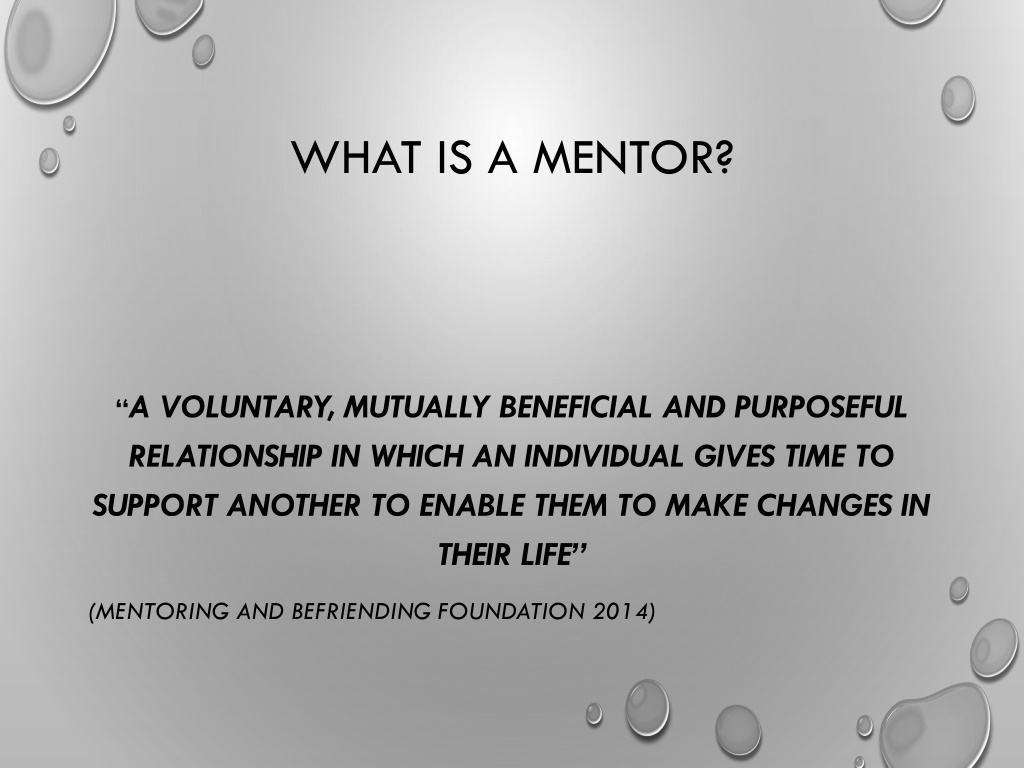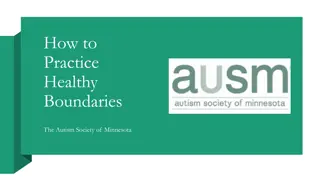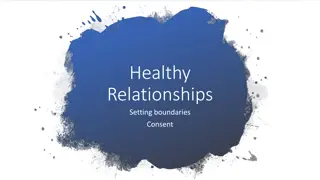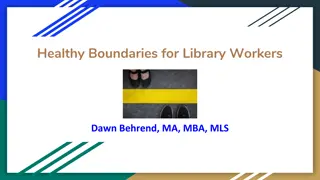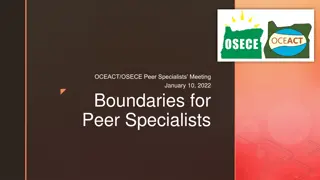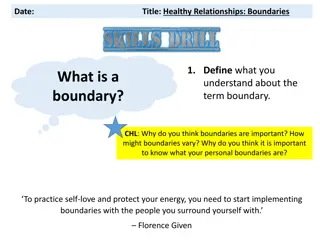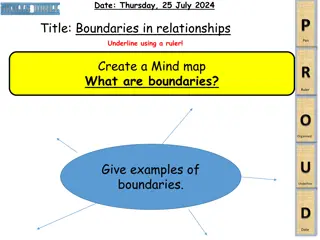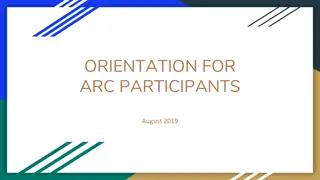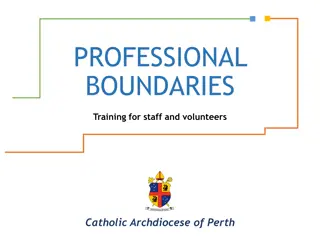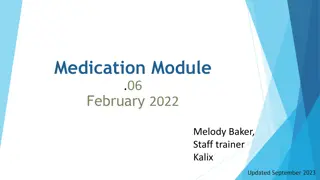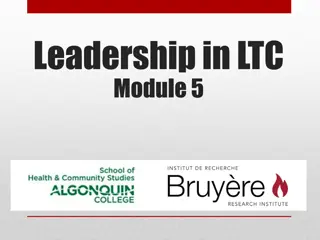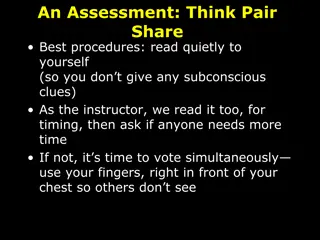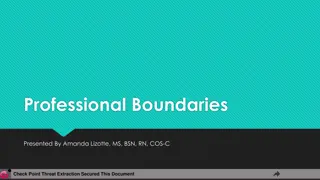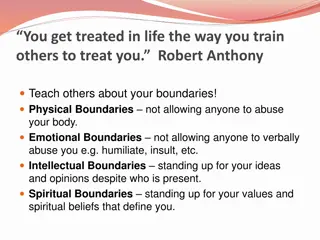Understanding Mentorship Boundaries and Responsibilities
Mentorship is a voluntary relationship where one individual supports another in making life changes. The mentor's role involves ongoing visits, building trust, reviewing progress, and managing endings. It excludes personal care, legal advice, financial involvement, and case work. Maintaining boundaries, being cautious with personal information, and avoiding excessive involvement are crucial for effective mentoring. Clear guidelines help mentors understand their role and responsibilities in supporting participants.
Download Presentation

Please find below an Image/Link to download the presentation.
The content on the website is provided AS IS for your information and personal use only. It may not be sold, licensed, or shared on other websites without obtaining consent from the author. Download presentation by click this link. If you encounter any issues during the download, it is possible that the publisher has removed the file from their server.
E N D
Presentation Transcript
WHAT IS A MENTOR? A VOLUNTARY, MUTUALLY BENEFICIAL AND PURPOSEFUL RELATIONSHIP IN WHICH AN INDIVIDUAL GIVES TIME TO SUPPORT ANOTHER TO ENABLE THEM TO MAKE CHANGES IN THEIR LIFE (MENTORING AND BEFRIENDING FOUNDATION 2014)
INDUCTION PROCESS - FIRST MEETING INVOLVE TRAINING PROJECT TRAINING - FIRST VISIT OFFICE FIND OUT PERSON S WISHES ACTION PLAN AGREEING TO INTENDED PURPOSE AND OUTCOMES ORIENTATION SESSIONS IN COMMUNITIES WHERE PEOPLE ARE HOUSED. ONGOING VISITS- DIARY SHEETS-REVIEW MEETING- SUPERVISISON REGULAR CONTACT AND SUPPORT. BULIDING RELATIONSHIP AND TRUST. REVIEWING PROGRESS WITH INDIVIDUALS. MANAGING ENDINGS. CLOSURE END REVIEW MEETING- EVALUATION
WHAT IS NOT INVOLVED IN THE ROLE? PERSONAL CARE I.E. WASHING OR DRESSING SOMEONE GIVING LEGAL ADVICE GETTING INVOLVED IN SOMEONE S FINANCIAL AFFAIRS BEING ALONE WITH CHILDREN OR A CHILD (ANYONE UNDER AGE OF 18) BECOMING FRIENDS/ ATTACHED GETTING INVOLVED IN CASE WORK
CONTINUED. COUNSELLING/ THERAPY GIVING FORMAL ADVICE ADVOCACY GIVING LIFTS- ATTENDING THE HOME - (THERE ARE SOME EXCEPTIONS TO THIS, PLEASE DISCUSS WITH A STAFF MEMBER IN ADVANCE SHARING PEOPLE S DETAILS WITH THIRD PARTIES WITHOUT THEIR CONSENT OR STAFF APPROVAL (EXCEPT IN THE CASE OF EMERGENCY).
UNDERSTANDING YOUR ROLE - BOUNDARIES Participant Their friends and family Health, social care, therapeutic and other support services
KEEPING HEALTHY DISTANCE IS IMPORTANT FOR BOTH THE MENTOR AND THE PARTICIPANT Meeting in public places. Giving out your phone number? Protecting your personal details. Your opinions and beliefs Getting too involved
BOUNDARIES If a person is stuck in a hole then you cannot help them out if you are in the hole with them. You are likely to be far more able to help from the outside
LOOKING AFTER YOURSELF Supervision sessions Telephone/ contacting the team Own self-soothe methods i.e. going for a run, reading Writing it down Being able to say no/ leave situation if you need to
